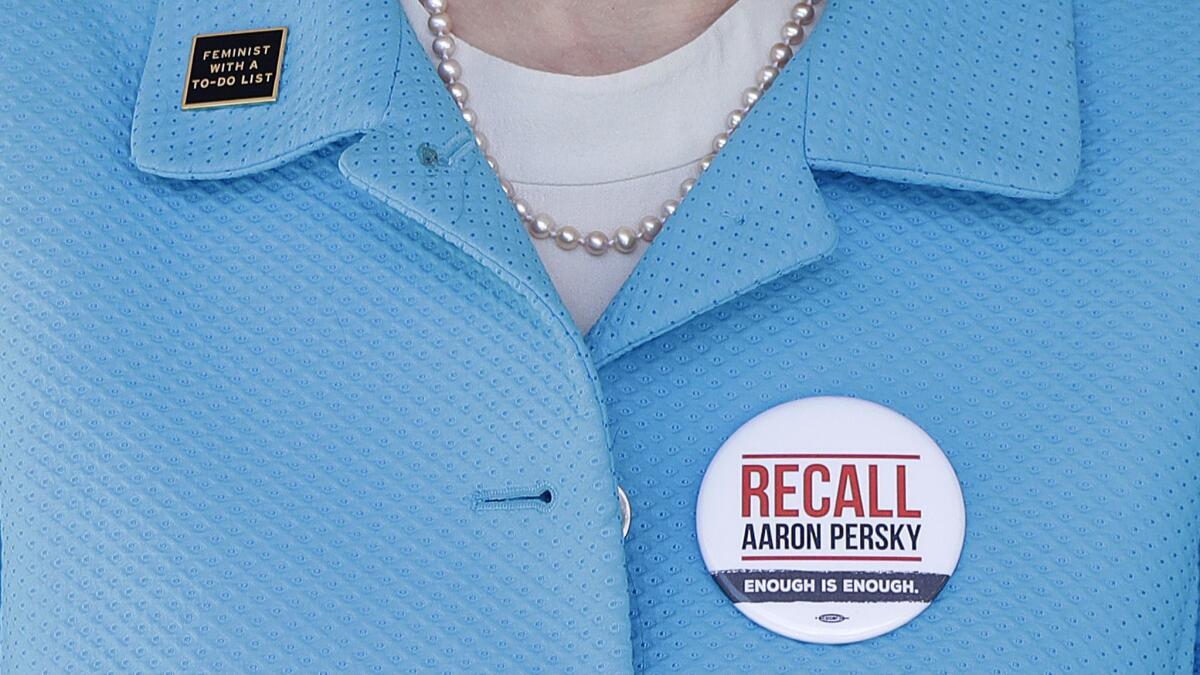Editorial: Recalling the judge from Brock Turner’s case will likely bring about less justice in California, not more

If Aaron Persky were the only judge affected by Tuesday’s vote to boot him from the Santa Clara Superior Court — in response to his too-lenient ruling in the notorious Brock Turner rape case — that wouldn’t be a catastrophe. He had a job, he served at the people’s pleasure, and the people fired him. He’ll find other work.
The problem is not what happened to Persky. The problem is how his recall will affect all the other California trial judges, some 1,500 of them, who now may be more likely to craft their sentencing decisions to take into account the degree to which an angry public wants the defendant punished.
No doubt most judges will claim that public reaction will have no bearing on their decisions, which they will continue to make in good faith without concern for their continued employment. And perhaps they will believe that about themselves, and perhaps some of them will manage to live by that rule.
Many states don’t elect judges. Perhaps they are onto something.
But certainly the outraged activists who campaigned to recall Persky for giving a six-month sentence to a man who raped an unconscious woman believe that judges will pay heed to their movement and keep it in mind when handing down sentences. The whole point of the action was to make clear in no uncertain terms that leniency in rape cases will bring serious employment consequences.
That means that the final say over individual cases in California lies not with judges but with the people. That may sound at first blush like a fine idea. After all, voters here can bypass the Legislature and make laws through the initiative process. They can recall their governor or any other elected official without waiting for the next regularly scheduled election, and they can replace him with a movie action hero. Such decisions may be smart or stupid, but either way they are the essence of democracy.
Democracy, though, is not always compatible with justice. Recalling judges in response to unpopular rulings undermines the bedrock principle that justice should not be meted out by mobs, crowds, headline writers, talk radio hosts or even reasonably thoughtful voters. It should be administered by jurists who act in accordance with the law and independent of the public’s view of any given case. Legal errors can be overturned on appeal. Misconduct is punished by the Commission on Judicial Performance.
Persky’s ouster is the first successful California judicial recall since 1932. But it is merely the loudest and most recent populist warning shot heard by judges, who can be thrown out by voters in regular elections every six years. That means fundraising and political campaigning already have a solid foothold in trial courts here. Judicial candidates don’t run on partisan tickets in California, as they do in some other states. But the judiciary here is politicized nonetheless.
The essential predicament of California judicial elections is that few voters bother because they have such little information about the candidates — yet what they really want to know is precisely the kind of thing they should avoid in their decision-making. For example, are the candidates liberal or conservative? Democrat or Republican? Will they be tough or lenient on rapists? On drunk drivers? On shoplifters?
The interplay between democracy and justice need not be quite so fraught. Many states don’t elect judges. Perhaps they are onto something.
Follow the Opinion section on Twitter @latimesopinion and Facebook
More to Read
A cure for the common opinion
Get thought-provoking perspectives with our weekly newsletter.
You may occasionally receive promotional content from the Los Angeles Times.










